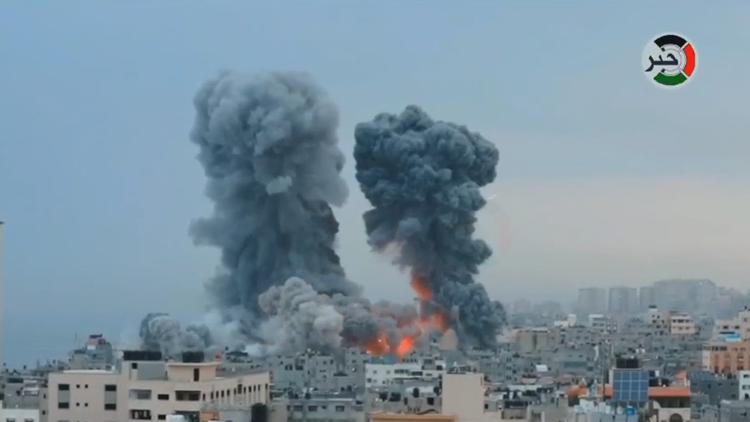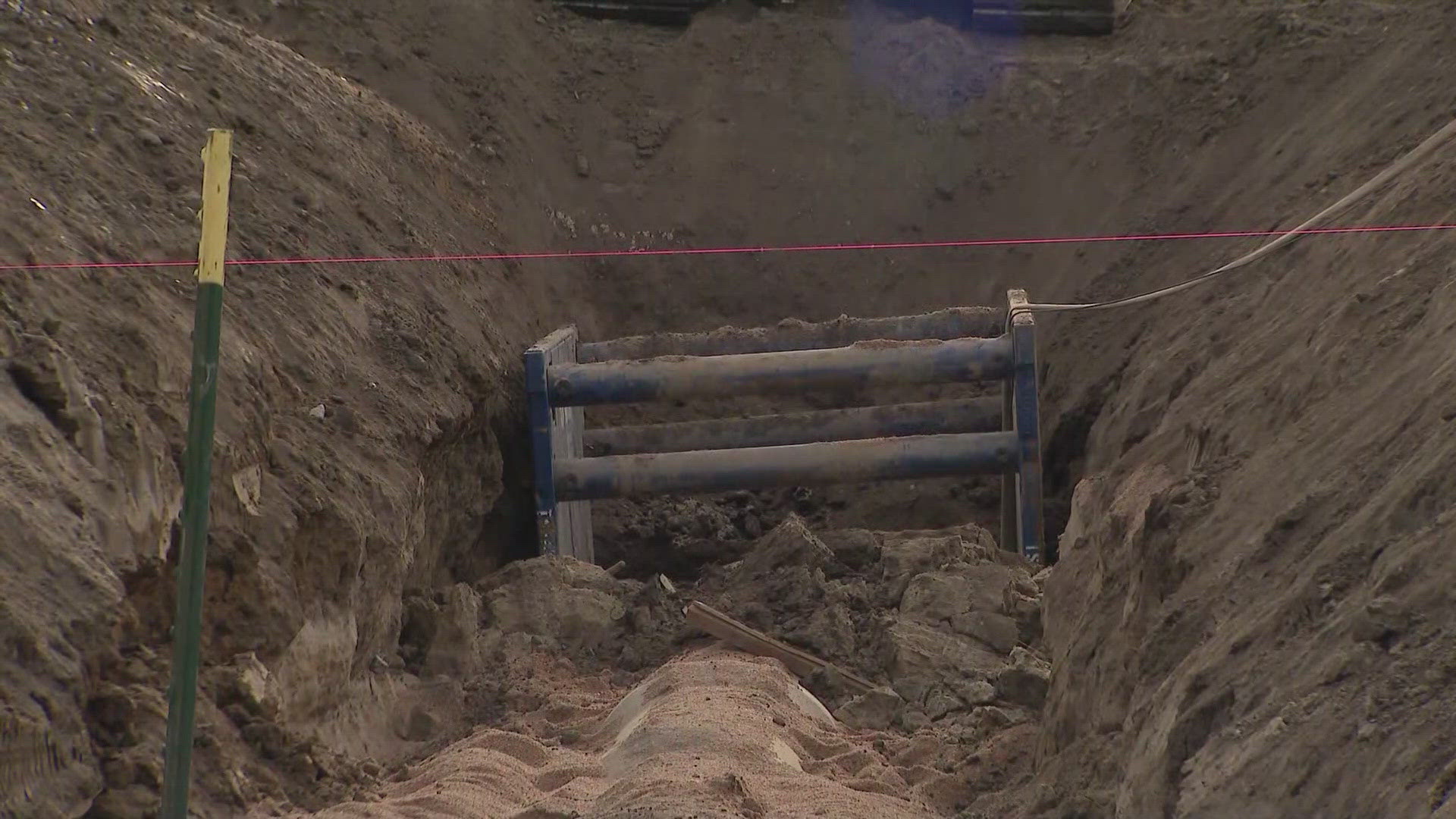DENVER — Experts in the affairs of the Middle East weighed in at a Wednesday night forum in Denver examining the Israel-Hamas war, which in 100 days has killed thousands of Israelis and Palestinians, threatened a regional conflagration and set off a fierce debate over the parameters of free speech across America.
In offering insights into the history of the conflict that has consumed much of the diplomatic energies in the region over the last several decades, the panelists expressed guarded optimism that a lasting peace is achievable but acknowledged that the solution — whatever that might be — is out of reach in the short term.
The forum at the University of Denver occurred as Palestinian militants battled Israeli forces in northern Gaza and the U.S. military fired another wave of missile strikes against Houthi-controlled sites in Yemen, as the violence that ignited in the wake of the Israel-Hamas war continues to spill over in the Middle East.
In setting the tone for the forum, University of Denver Chancellor Jeremy Haefner said it's important for such difficult conversations to happen in the U.S., where campuses have convulsed from a swell of pro-Palestinian protests and counter-protests, accusations of antisemitism and claims of curtailing academic freedom.
"There's hope, and that hope comes tonight," Haefner told the packed room inside the Maglione Hall at DU. "This is a space where we can engage in reflective thinking, where we can have moments of greater learning and understanding, where we can exhibit civil discourse in a culture of respect and deep appreciation of the plurality of thought, not just in this war but in all things."
"This is what universities do. It's not what we can do, it's not what we must do, it's what we do," he said of the forum, which was hosted by the Josef Korbel School of International Studies and sponsored by The Denver Gazette, Colorado Politics and 9NEWS.
The discord at some of U.S. colleges — where students have launched protests to denounce Israel and show support for the Palestinian people and also attracted counter-protests — has highlighted the debate in Colorado and America over the parameters of free speech on campuses. Some university leaders have struggled to respond to the Hamas attack, to the ensuing war and to the subsequent demonstrations that roiled colleges.
Several walked a tightrope, expressing horror at the violence while noting the heavy losses on both sides. A few said they unequivocally back the Jewish state. Others emphasized the need to remain neutral not just on the Israel-Hamas war but on all politically hot-button subjects, arguing neutrality allows students and faculty to articulate divergent views without fearing a backlash.
Wednesday's forum remained civil throughout — no pro-Palestinian protest or counter-protest or any kind of demonstration erupted.
To the panelists, academic freedom is sacrosanct.
“Freedom of speech can be a way of expressing frustrations and anger and rage,” Dr. Micheline Ishay, director of the Center for Middle East Studies at the Josef Korbel School of International Studies at University of Denver, said earlier. Ishay moderated the forum. “Academic settings are different environments where we have to talk more critically and engage more responsibly. A level of sobriety is always important in those venues.”
Wednesday's panelists — Dr. Ahmed Abdrabou with the Josef Korbel School; Dr. Jonathan Sciarcon with History and Judaic Studies at DU; Gary Grappo, a former U.S. ambassador to the Middle East; and Dr. Karim Mattar with the Department of English at CU Boulder — expectedly offered divergent opinions of the war but also broadly agreed on what needs to happen.
They agreed that the Oct. 7 attack, which killed 1,200 people, including children, was brutal and atrocious. The panelists surmised it was aimed at scuttling the peace negotiations involving the Saudis because — to Hamas — if those negotiations succeeded, it meant marginalizing the Palestinian cause.
They sought to situate the attack against the backdrop of decades of conflict between Israelis and Palestinians and between Israel and the Arab states — what one panelist called the "overlapping history" of discord in the region.
They said that, somehow, the Christians, Muslims and Jews in the region must find a way to renew the cultural bonds that predated today's conflagrations and which — Mattar said — allowed the groups to live together under some level of peace and security in the region for 1,400 years.
That goal of restoring those bonds against the backdrop of seven decades of war is paramount, Mattar said.
"Two-state or one-state, it’s a pie in the sky if you have leaders on both sides interested in inciting the hatred of their people," Mattar said, referring to the debate over establishing separate, independent states for Israelis and Palestinians.
The panelists talked at length about the knots that the parties must disentangle to bring about peace in the region.
"You cannot kill Palestinian nationalism," said Grappo, the former U.S. ambassador who is now a Distinguished Fellow of the Center for Middle East Studies at DU's Josef Korbel School.
That nationalism, he said, may "manifest itself peacefully" — as seen in the negotiations that took place in the 1980s and 1990s — but also "now through the acts of violence."
To Abdrabou, the solution is clear.
"Pragmatically speaking, the only solution is to negotiate a two-state solution," he said.
The problem is figuring out who will negotiate from each side, he said, adding that's not possible under Prime Minister Benjamin Netanyahu and perhaps not under the ruling Likud party in Israel.
"It doesn’t seem to be possible with Hamas," he added, noting Hamas does not accept the legitimacy of Israel.
Meanwhile, he said, the Palestinian Authority is "very weak."
"The answer is clear," he said.
How to get there is not, he added.
While the two-state solution is getting a second look from several quarters, including from the Biden administration, many question its feasibility, with some arguing that Israel doesn't have a viable partner among the Palestinians to make it work.
During the forum, Mattar said Hamas "emerged" out of decades of "deep Palestinian suffering."
Grappo countered he doesn't think Hamas holds "any interest in manifesting the frustration of Palestinians."
If they were, Hamas would have invested the money on the people of Gaza — not on arming its militants or building an underground tunnel network.
Ultimately, Grappo said, what needs to happen is "repeated diplomacy."
Ishay, the moderator, effectively called the region a powder keg on Oct. 6, the day before the attack.
The Middle East, she said, was already beset by civil wars and economic uncertainties and some attempts by some parties to negotiate peace.
In response to one question, Sciarcon, the associate professor from the Department of History and Judaic Studies, said policymakers would have to grapple with it and provide the answer.
"I'm a historian," he said. "I can’t answer it."
Denver Gazette Executive Editor Vince Bzdek and The Associated Press contributed to this article.
> Video below: Israel-Hamas Conflict: Upcoming Panel To Foster More Conversations
SUGGESTED VIDEOS: Latest from 9NEWS



